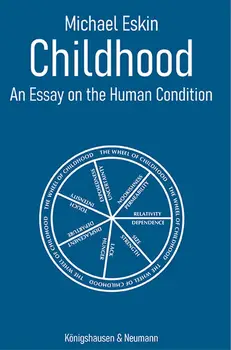The human condition has traditionally been defined in terms of mortality: Our knowledge that we will die has been said to constitute the axiological ground of existence, the value- and meaning-bestowing matrix underlying all our hopes, aspirations, relationships, and endeavors. But is this how we truly and actually live? Do we make choices, pursue personal and professional goals, value beauty and friendship, love our children, parents, and spouses because we are ever aware of our own and others’ finitude? In his groundbreaking, utterly original exploration of the human condition, Michael Eskin puts paid to the hoary philosophical ‘argument from mortality’, proposing rather that it is our irreducible, universally shared condition of childhood – understood as our lifelong experience and consciousness of being necessarily and ineluctably somebody’s child – which ought to be considered humanity’s most fundamental, existentially and ethically defining characteristic. On the basis of a granular analysis of the ontological, existential, and ethical dimensions of the condition of childhood – or what he dubs the ‘condicio pueritiae’ (with a parting nod to Cicero’s ‘mortalis condicio’) – Michael Eskin opens up unprecedented vistas onto humanity’s potential, possibilities, and obligations.
0.0(0)
Childhood
Autor/a:
Formato:
Duración:
- 455 páginas
Idioma:
inglés

